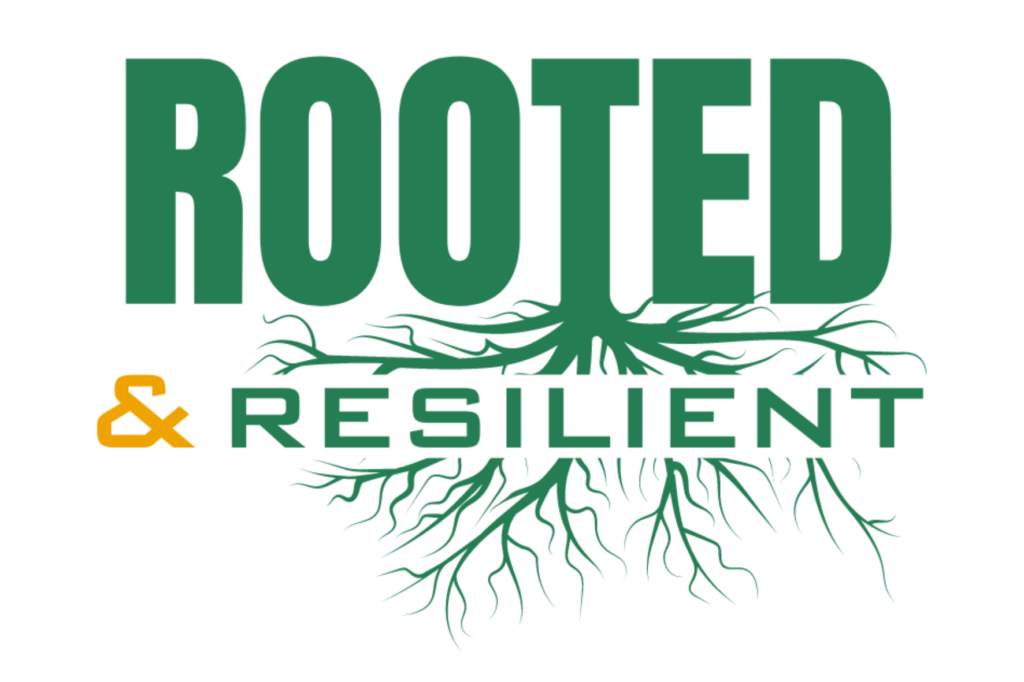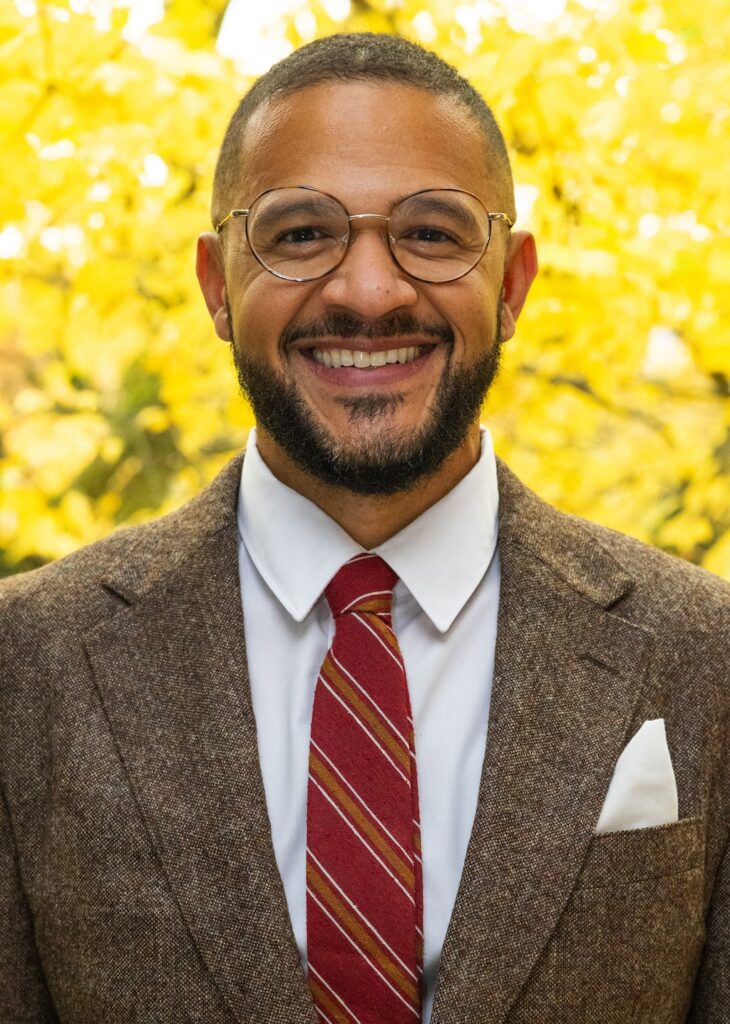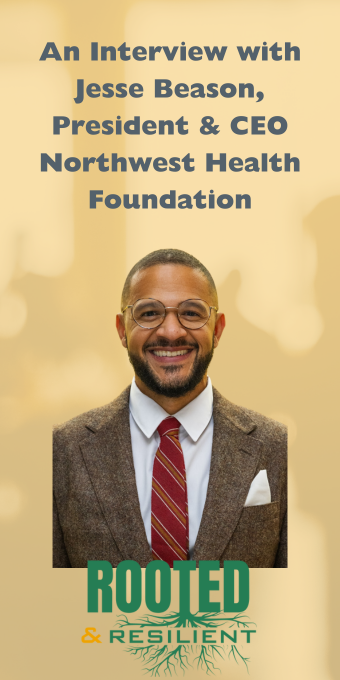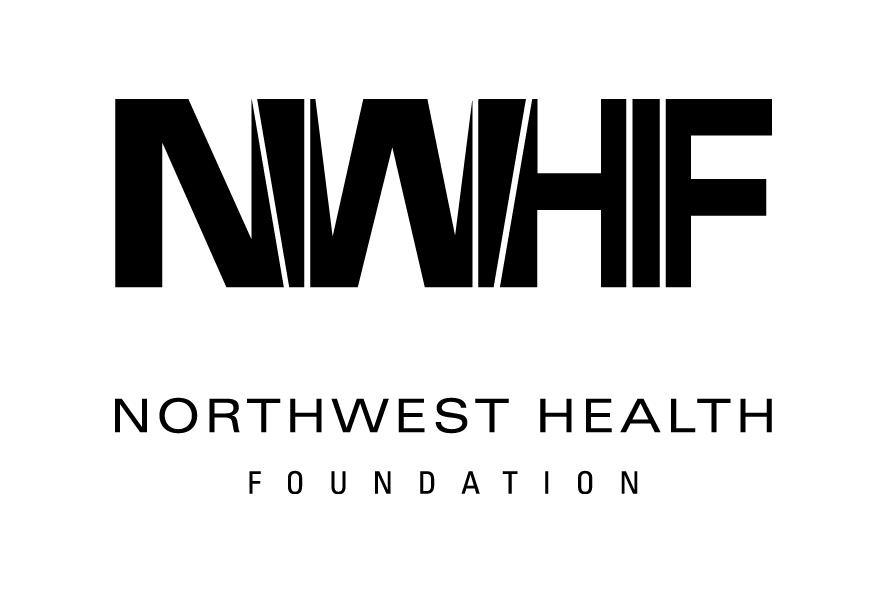Rooted & Resilient: A Celebration of Black Social Sector Leaders: Jesse Beason, President & CEO at Northwest Health Foundation
In this conversation, our Associate Consultant Sumaya Quillian spoke with Jesse Beason, President & CEO of the Northwest Health Foundation. Jesse shed light on the foundation’s innovative approach to philanthropy in Oregon and Southwest Washington, as one of the few 501c4 foundations in the United States. Jesse’s diverse background across arts, politics, housing, and philanthropy has been pivotal in shaping the foundation’s approach to social change.
Reflecting on his international experience as a Marshall Memorial Fellow, Jesse also shared his perspective on the intersection between race and social policies, which has informed his advocacy efforts. He stressed the need for an ecosystem approach to achieve meaningful change and highlighted the need for philanthropy to assume greater civic leadership on social issues.
Jesse also offers insights for future leaders on the importance of thoughtful engagement, role clarity, and openness to new ideas, as well as sharing his approach to self-care.

Tell me a little bit about the Northwest Health Foundation and your role.
The Northwest Health Foundation is a small but mighty foundation focused on Oregon and Southwest Washington. It’s been around for 25 years, and we’re a little unique in that most of our resources are 501c4, but we also have a 501c3 that we make grants from as well. I’ve been there 10 years and in this role as President and CEO for 5 years.
Can you share more about what a 501c4 foundation is, and what’s unique about the impact it can create?
Through our grantmaking to organizations, we can support an unlimited amount of lobbying and a certain amount of candidate work, which means we can support organizations who are using all the tools in the toolbox to make change in our democracy.
Tell me about some of your previous work experiences and tools you brought from those experiences that have been important to your role at NWHF?
I’ve been fortunate to have a wide range of career and volunteer opportunities that brought me into the arts, politics, housing, philanthropy, and it’s given me a wide range of perspectives about how to make change in our society. Many opportunities I’ve had also came about unintentionally through relationships I’ve built over time and ways I’ve volunteered to serve my community. I came out of college thinking I wanted to be in public broadcasting, but I can nerd out about a lot of things, so I’m fortunate that my brain finds many things interesting. 12 years ago, the idea of being president of a small foundation was nowhere close to what I would’ve imagined for myself.
Among your many accomplishments, you are an alumni of the Marshall Memorial Fellowship, which is a program that promotes transatlantic cooperation between the U.S. and Europe and includes a month-long exchange across Europe. How has international engagement influenced your life and perspective?
For me, it was an opportunity to think about different countries beyond the purpose of tourism, which was the only kind of exposure I’d had before. You can really feel the policy choices people have made in different places, and it struck me how egalitarianism relies on cultural homogeneity. Our country has experienced that the more people believe the beneficiaries of social policy or programs are not the people they deem deserving of it, it’s easier for people to say, “we would rather no one get them.” In Europe, it seemed clear that it’s easier to build a social safety net structure for humans when they think the beneficiaries are exactly like them. It also made me recognize that Europe has its own racialized tensions, which we see with the increase of non-European migrants, but also in the way European countries view each other. So, yes, European countries have built better social structures for caring for one another, but when you poke at that, as an outsider, it seemed like so much of that is about homogeneity.
Thinking about the complexity of effective social policy – whether in Europe or in the U.S. – did having that experience give you insight regarding how you approach advocacy work at the Northwest Health Foundation?
One of the roles the Northwest Health Foundation hopefully plays is providing a level of actionable information to grantees to grapple with things, and a tension that many organizations and community members feel is – “are we trying to change all hearts and minds, or are we just trying to change enough hearts and minds to change the rules and make things more fair?” There’s also this tension of, “do you want to win, or do you want to be right?” So if only 15% of white Americans support reparations, do you want to try to get the other 85%, or is there another fight worth fighting that would help advance Black health and wealth? I don’t know the right answer. And I don’t know if grantees are always spending enough time grappling with the benefits and drawbacks of those choices, so we hope we’re providing them with more information to do that.
If you’re a police abolitionist, for instance, it might feel important to say that you are a police abolitionist, but then some doors will close to you, and you won’t be invited into certain conversations because of that. It becomes so important to consider what is the lane you want to be in, and do you have clarity about that lane and its opportunities and drawbacks. I don’t think we spend enough time in an ecosystem conversation – thinking I’ll take this lane, so you can take that lane, and recognizing why we’re each in different lanes. It’s not about one lane being right and another lane being wrong.
What do you think of as the greatest challenge or opportunity in your sector?
Philanthropy is challenged by very little in the sense that, as a friend and colleague says, “it has no natural predator.” We’re the least accountable sector, so the challenge for philanthropy is whether it’s going to assume a greater responsibility for problems that society faces. That doesn’t mean we’re the ones with the answers, but it would require us to assume a level of civic leadership and engagement that I don’t think we’ve had at the right scale thus far, at least where I live.
What advice would you give to someone following in your path, whether it be philanthropy or political advocacy or power-building?
I would say people should spend more time thinking about what they actually think. We’re often rushing into action without thinking about how we see the world, the change we want to make or be a part of, and what’s the bigger framework in which we want to operate. Also figuring out what your role is in each particular position you might find yourself in. The role I have in the Multnomah County Board as a governing role is very different than an advocate’s role caring about a very specific thing and trying to advance a very specific perspective. Being mindful of what your role is and having or seeking clarity about that is important. I would also say having an openness to changing your mind with new information, whether it’s from podcasts or your relationships or all the other ways we are exposed to new perspectives.

What is your approach to self-care?
Finding the things that allow yourself to remain in the present and in your body, which can be different for everybody. So you know, I like the gym, massages. I think technology is amazing, but it’s also what has given us a great sense of powerlessness about the global strife we see. Because we can both know about it instantly and recognize we can do nothing in the moment to stop it. I think our brains weren’t necessarily built for that, so decompressing and disconnecting is not just a choice of disengagement – it’s actually good for your brain to be in the very small environment that you actually live in. I find joy, comfort, and solace by contextualizing myself appropriately as someone that is incredibly valuable and important to plenty of people, but also so unimportant and irrelevant in the scheme of the past, present, and future of this species.
I also like reminding myself that I’m a collection of atoms and neurons that I’m literally not in control of, with a subconscious that’s doing so much of the actual thinking for me. And it isn’t always right. This is the root of survival, but the subconscious is also the root of bias. So for me, reminding myself of how much we are driven by processes out of our control is comforting, and it brings me back around to remaining open to changing your mind. (Pictured left, Jesse is a proud guncle, a semi-closeted sci-fi geek and a middling beekeeper)
To learn more about the work and impact of the Northwest Health Foundation, you can check out their website or follow them on Instagram, Facebook, and Twitter.



Comment section